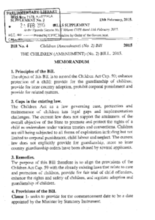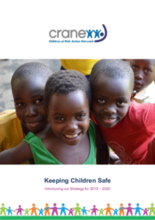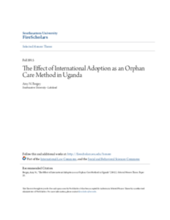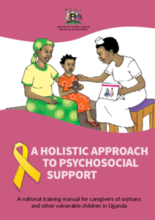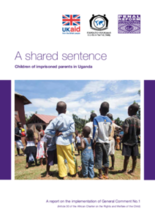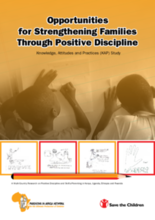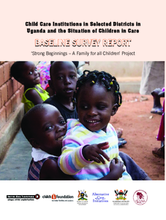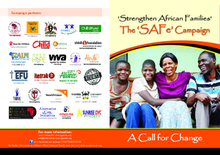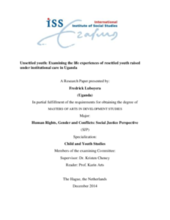This country page features an interactive, icon-based data dashboard providing a national-level overview of the status of children’s care and care reform efforts (a “Country Care Snapshot”), along with a list of resources and organizations in the country.
demographic_data
childrens_living_arrangement
children_living_without_bio
social_work_force
key_stakeholders
Key Stakeholders
Add New DataOther Relevant Reforms
Add New Datadrivers_of_institutionalisation
Drivers of Institutionaliziation
Add New Datakey_research_and_information
Key Data Sources
Add New DataThe Children Act (Uganda)
Country Care Review: Uganda
Prevalence and number of children living in institutional care: global, regional, and country estimates
The National Integrated Early Childhood Development Policy Action Plan (2016-2021) of Uganda
Catholic Care for Children in Uganda: A Family for Every Child - Findings from a Midterm Evaluation
Acknowledgements
Data for this country care snapshot was contributed by a consultant with the Data for Impact (D4I) Project at Palladium Group LLC.
Displaying 311 - 320 of 418
This easy to use resource from the Ministry of Gender Labour and Social Development in Uganda, in consultation with civil society, outlines a continuum of care framework for responding to vulnerable children.
In 2015, the Parliament of the Republic of Uganda considered the Children Amendment Bill, which has several implications for children’s care in the country. The object of the bill is to amend the Children Act Cap. 59, enhance protection of a child, provide for the guardianship of children, provide for inter country adoption, prohibit corporal punishment, and provide for related matters.
As a network, we aim to achieve more by working together for children than by working in isolation.
For the first years of CRANE’s life, the network strove to be the strongest and most effective Christian
network and to see Christians working together in strategic partnerships towards transformational
change for children. By the 10th anniversary, the network had established that platform. Therefore we
are now looking to make our unique contribution much clearer and much more challenging.
This literature review addresses how international adoption affects Uganda’s orphan care methods from both micro and macro perspectives.
The focus of this manual is on translating theoretical knowledge about policies into practical actions to provide psychosocial support to orphans and vulnerable children.
This research conducted jointly by the Foundation for Human Rights Initiative and PRI assesses to what extent the guidance contained in the 'General Comment on the rights of children when their parents or primary caregivers are in conflict with the law' has been implemented in Uganda, highlighting some of the gaps that need to be filled.
This study intended to develop data regarding how families parent and nurture good behaviour in their children; whether they know what would constitute nonviolent (positive) discipline; and if they actually utilized the positive aspects of disciplining. The study was conducted in specific areas (study clusters) in Kenya, Uganda, Ethiopia and Rwanda.
This report presents findings of a baseline study for the Strong Beginnings -- A Family for all Children project.
This Call for Change from the ‘SAFe’ Campaign in Uganda provides an overview of the situation of orphaned and vulnerable children in Uganda, highlights key concerns related to this situation, and outlines ways forward for strengthening families.
This study is purposely looking at issues around institutionalization and the experiences of resettled youth resulting from the social and economic challenges that affect them in independent living, tackling how they are negotiating and overcoming them.

